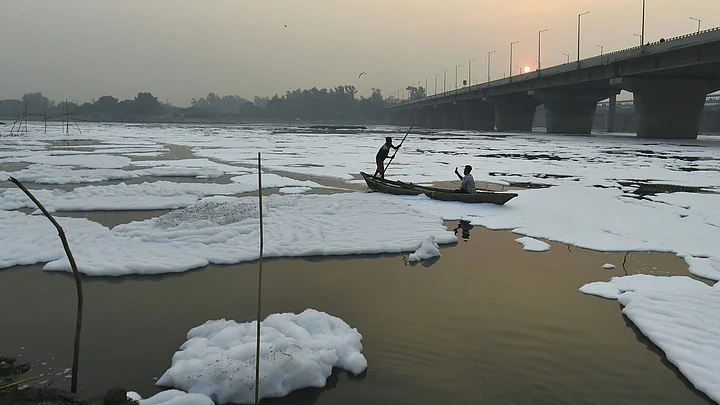Over a period of two decades, from 1999 to 2019, only 895 unique parliamentary questions (PQs) related to climate change were raised by 1,019 members of Parliament (MPs), forming only a fraction (0.3 percent) of the total parliamentary questions asked, a study titled 'Climate change: the missing discourse in the Indian Parliament,' said.
The study was conducted by Seema Mundoli, Zubin Jacob, Ranjini Murali and Harini Nagendra, Centre for Climate Change and Sustainability, Azim Premji University, Bengaluru, and The Snow Leopard Trust, Seattle, United States, and was published in the journal Environmental Research: Climate.
The researchers asked four questions:
How often are PQs raised about climate change?
Are vulnerable constituency interests being represented in the Parliament?
What kinds of questions do parliamentarians ask?
Where do parliamentarians get their information on climate change from?
It was found that “The PQs were mostly concerned about the impacts (27.6%) and mitigation (23.4%) of climate change. Impacts on agriculture (38.3%), coastal changes (28.6%), and health (13.4%) were of main interest, along with mitigation issues related to energy (43.6%), agriculture (21.8%), and aviation (9.1%)."
Further, despite the significant and growing vulnerability of India to climate change, the study said, "PQs related to climate change were largely missing. Although they have increased over time, we still find there is substantial room for growth, especially in critical areas of climate justice and adaptation relevant to the Indian context.”
Highest Number of Questions and From Where:
The highest number of questions (104 questions) were asked in 2015, whereas the largest spike in questions was in 2007, where the number of PQs jumped from eight asked in 2006 to 53 asked in 2007.
MPs that asked the most PQs were from Maharashtra (181), Andhra Pradesh (105), Tamil Nadu (99), Uttar Pradesh (98), and Kerala (69), and the MPs from states that asked the least questions were Mizoram (0), Manipur, Meghalaya, and Punjab (two each).
A total of 92 women MPs asked 117 PQs and 927 men MPs asked 1,245 PQs.
The study underlined:
"India is one of the most vulnerable countries to climate change. According to the Global Climate Risk Index, in 2019, India was one of the ten most affected countries due to extreme weather events."
Despite the risk that Indians face in the form of climate change, "this form of parliamentary oversight is severely under-utilised."
Conclusion
The study concluded, "Climate change is one of the biggest game changers facing the world today. India, with its high population density, substantial urban coastal population exposed to climate extreme events, and strong dependence on climate-vulnerable sectors such as agriculture for livelihoods and food security, needs to gear up to cope with a climate emergency that is at its doorstep."
The study further found that "despite the importance of climate change for India’s future," it was found that PQs on climate change represented a very small fraction of all PQs in India over the past decade.
Moreover, "despite the fact that climate impacts are largely local, our findings indicate that MP from the most climate vulnerable states are not asking questions on climate change. It is surprising to see issues of climate justice, and of differential climate impacts on especially vulnerable constituencies including women, children, and the poor, are almost completely absent from parliamentary discussions," the study concluded.
(At The Quint, we question everything. Play an active role in shaping our journalism by becoming a member today.)
